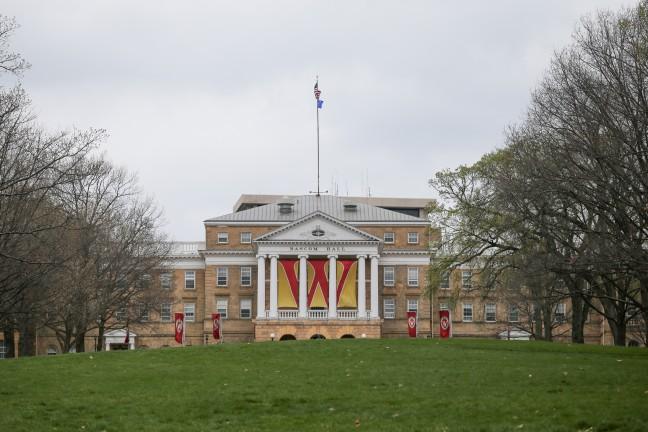University of Wisconsin Faculty Senate had its monthly meeting Monday and passed resolutions regarding conceal carry on campus and fetal tissue in research, and had discussions on the university’s tenure and post-tenure review policies.
A push for tenure
After making a motion to discuss the university’s tenure policy at the beginning of the meeting instead of the end, sociology professor and American Federation of Teachers member Chad Goldberg urged colleagues to vote for the resolution, to send a strong message to regents that UW takes American Association of University Professors standards “very seriously.”
Faculty raised concerns about whether the language in the American Federation of Teachers statement regarding tenure and indefinite status.
Goldberg said if UW were to adopt the national policy, when the university calls for equality within the UW System that it doesn’t mean they want to be “dragged down,” but rather UW is moving ahead with writing its own rules.
English professor Christa Olson said when having conversations, UW needs to be clear on the public value of tenure.
“We need to say tenure is about allowing controversial research and teaching to happen,” Olson said. “Tenure is also about recognizing there is a system of values that is not economic and so that not every decision is based off what is economically appropriate.”
No amendments were made to the resolution, and the policy was adopted with resounding approval.
Post tenure reviews
English professor Caroline Levine introduced the university’s proposal on post tenure review, which consisted of minor changes to UW’s Faculty Policies and Procedures.
Levine said most, if not all, schools and colleges perform some kind of post tenure review, but the implementation of reviews differ from department to department.
The goal of the proposal was to clarify and standardize policy so there were guidelines that made sense.
“We made it a top priority to make sure that post tenure review wouldn’t and couldn’t become a backdoor way to undermine academic freedom,” Levine said.
After examining educational review quality while drafting the proposal, Levine said the university’s Tenure Ad Hoc Committee found elaborate performance reviews were too time and energy consuming for a procedure that responds to one or two people.
Instead, Levine said the University Committee is proposing a “satisfactory” and “unsatisfactory” rating.
After an unsatisfactory rating, the faculty member in question will meet with the department chair to devise a written plan to resolve the issue. After three unsatisfactory reviews, the provost will review the faculty member’s performance to determine possible action.
Judith Burstyn, chemistry professor, said a “three strikes and you’re out” policy is something of serious concern. But in further discussion, she introduced the importance in protecting due process, a sentiment that was echoed thereafter.
David Vanness, president of the UW AAUP chapter, said there wasn’t a clear enough separation between the post tenure review process and an unsatisfactory ranking and that UW has to be “very clear” that unsatisfactory rankings is not by itself an expression of adequate cause.
The ad hoc and university committee prepared and approved the post-tenure review proposal, respectively.
The proposal will be further discussed at listening sessions Nov. 10 and 11 before being brought back to December’s Faculty Senate meeting.
Concealed Carry
The senate also responded to this month’s proposed legislation calling for concealed gun carriers to be able to bring weapons into university buildings.
Over the past month, many campus officials, including Chancellor Rebecca Blank and University of Wisconsin Police Department have openly opposed the proposal.
Many believe the proposal would in fact make campuses less safe, the proposals opposite intentions.
With a large approval from the senate in a voice count, the senate approved the resolution in opposition to the state’s proposal.
Fetal Tissue
Last month state legislature proposed and passed a bill banning research using fetal tissue throughout the state.
After welcoming discussion of the proposed resolution to fetal tissue in campus research, the faculty senate passed the resolution with resounding approval in opposition to the legislation.


